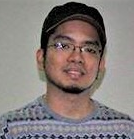Decoding Culture’s Advise
by Vincent Velasquez, MA, RPsy
 In this day and age Facebook serves as a conveyor for, not just news and rumors, but cultural ideas as well. Back in the day, beliefs shared by the community are thrown around like ping pong balls during afternoon siestas and chit-chats in the dining table, any occasion where there is a physical gathering. But now, such exchanges follow you everywhere so long as you have Internet connection.
In this day and age Facebook serves as a conveyor for, not just news and rumors, but cultural ideas as well. Back in the day, beliefs shared by the community are thrown around like ping pong balls during afternoon siestas and chit-chats in the dining table, any occasion where there is a physical gathering. But now, such exchanges follow you everywhere so long as you have Internet connection.
Newsfeed has brought me countless “advice.” Some of them are quite contradictory to one another like “surrender everything to God” and “you are the captain of your ship.” Of this variety a couple caught my attention. The first one reads “nobody knows you better than your own self,” while the second goes something like “the words you tell yourself can make or break you.” The first eggs you to believe in yourself, while the other cautions you against self- deception. Read on their own, both make sense. Put side-by-side, they become confusing.
After much reflection, I think I may have found the answer. The “sayings” are incomplete. They do not mention which “voice” inside you to listen to and which one to take caution against. Here is the complete and concise version. “Believe in your capabilities, doubt your excuses.” Culture reminds us of this idea because we do exactly the opposite. We doubt our capabilities, and believe our excuses.
“Believe in your capabilities.” Inside everyone of us lies a champion. We tread our personal journey, and within our own narrative we can be the hero. In real life, unlike in Hollywood films, heroism is much less extravagant, but more meaningful. We are not heroes of a whole tribe, but we can be to our parents, friends, son and daughter, spouse, students, clients, anyone in need. The hero believes in hard work so he trains everyday. This is analogous to having a “growth mindset,” which is essential for self and professional growth. We can learn almost anything with the right amount of effort, patience and correct methodology.
The hero’s journey is not complete without defeating the enemy, without “slaying the dragon” so to speak. The dragon we slay in real life lies not in the outside world, but within ourselves. Dragons in mythology symbolize destructive impulses we posses, which we must “slay,” that is to say learn to understand and manage. Only by mastering our impulses and cultivating our strengths can we fulfill our potentials. This message is the “voice” within us that we must believe in.
“Doubt your excuses.” We make excuses everyday, from not waking up on time to not taking our meds or eating the right food. In today’s pandemic many go outside due to boredom thinking “I have a strong immune system, I won’t be infected.” In psychology, we call this rationalization, which are excuses we tell ourselves unconsciously. The features that make rationalizations potent are: 1) although we may share them to others, we primarily tell them to ourselves, 2) we believe them, 3) we are not aware we are making such excuses, they are unconscious. These are the “voices” within us that we should doubt. The psychologist’s antidote to this is cultivation of self-awareness. The culture’s antidote are sayings conveying the message “watch what you say to yourself,” or in my formulation, “doubt your excuses.”
We are in the midst of trying times. Certainly, we need to strengthen our resolve. Cultural maxims can help us face these challenges, as individuals and as a community. They exist for a reason. They aren’t just hackneyed ideas we pass around in Facebook for pastime. They are products of collective experiences through the ages. They bear wisdom. Thrown into this pandemic, it pays to reflect and take heed. In no other time that we need to doubt our excuses and believe in our capabilities more.
________
 Vincent Franklin D. Velasquez is a Registered Psychologist. He started his teaching career at TUA for more than a decade now and practices his profession as Clinical Psychologist off campus.
Vincent Franklin D. Velasquez is a Registered Psychologist. He started his teaching career at TUA for more than a decade now and practices his profession as Clinical Psychologist off campus.


 The Trinitian Center for Community Development is the official arm for Community Extension Service that supports Trinity University of Asia in carrying out its Vision and Mission of involving her constituents to live a LIFE that is GOD-centered and in service to the community.
The Trinitian Center for Community Development is the official arm for Community Extension Service that supports Trinity University of Asia in carrying out its Vision and Mission of involving her constituents to live a LIFE that is GOD-centered and in service to the community.